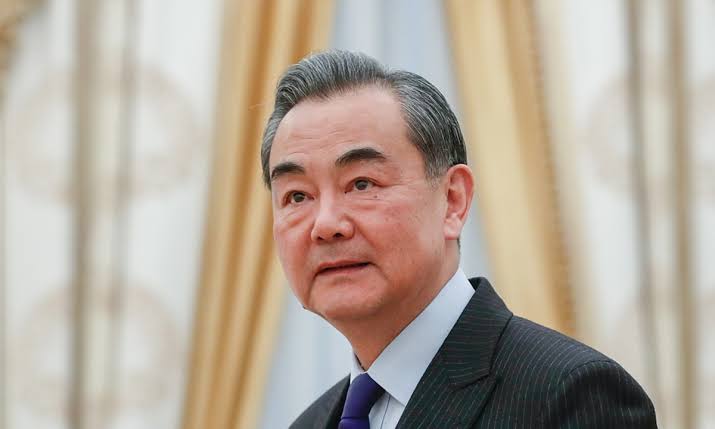India and China to manage border dispute and urge Ukraine peace and dialogue

India and China are the world’s two major developing countries and emerging economies. They must stick to their own development paths and join hands to safeguard peace and stability both in Asia and the world.
This was the theme which emerged when Chinese State Councilor and Foreign Minister Wang Yi called upon the External Affairs Minister Shri Subrahmanyam Jaishankar in New Delhi. India stressed that the two sides should resolve the Indo Tibetan border issue in a proper manner bilaterally and manage all conflicts to facilitate the development of relations.
Wang proposed a three-point approach to achieving that end – both sides should view bilateral relations with a long-term vision, see each other’s development with a win-win mentality, and take part in the multilateral process with a cooperative posture.
Wang stressed that as mature and rational major developing countries, China and India should not let the LAC issue define or affect the overall development of the bilateral relationship. China and India should support each other, not consume or exclude each other.
The two sides should manage and control differences, and facilitate the development of bilateral relations, Wang said.
It is clearly evident that China wants to downplay the conflicts and move on other fronts.
Jaishankar said that since last year, India and China have maintained effective diplomatic and military communication. After several rounds of military commander-level talks and border affairs mechanism meetings, troops of the two sides have achieved disengagement in most areas of the western sector of the border, and the disengagement in the remaining areas should be completed as soon as possible.
Thus India has a bit different view. The Indo Tibetan border issue has to be resolved fully, so that rapid progress can be made on all other fronts thereafter. Till this is done, we cannot have business as usual.
Shelving LAC issues and seeking common ground have always been China’s clever diplomatic philosophy of “bilateral relations should not be pinned only on the border issue.” However India will not accept this kind of thing. The starting point has to be RESOLVING OF ALL BORDER ISSUES.
Wang, the highest-level Chinese official to visit India since the clashes at Galwan Valley, also met the Indian National Security Advisor Ajit Doval.
India and China also discussed COVID-19 control, the Ukraine crisis and Afghanistan issue, and jointly expressed concerns over the unilateral sanctions’ impact on the global economy and security of the supply chain.
Chinese analysts have also noted the US’ role of drawing discord between China and India by demonizing China as a security threat and making China the target of the QUAD mechanism.
Roles in intl affairs
India’s strength, self-confidence and international status have developed enormously. China-India relations have gone beyond the bilateral level with great international implications.
LAC clashes will remain a rocky point for a while. However similar stances on the Ukraine crisis of China and India opened a window for the two neighbors to adjust their relations, hopefully downplaying conflicts and maximizing common interests.
The US has stepped up courting India against Russia. A Pentagon official provided lip service by promising oil and military equipment to India, and heightened pressure on India by criticizing New Delhi for “sitting on a fence,” plus mobilizing its QUAD ally Japan to lobby India to change its stance.
China stressed that Both China and India should grasp the opportunity to enhance coordination in multilateral and international occasions and jointly play positive roles in international affairs, especially in the Ukraine crisis and Afghanistan issue.
India “is not alone” in developing normal relations with Russia, and it is possible that China and India can develop political mutual trust, which was eroded due to border conflicts, by jointly playing constructive roles in mediating the Ukraine crisis and addressing the humanitarian crisis in Afghanistan.
Cooperation on international occasions can create benign conditions for solving bilateral problems. China and India must seek common ground on those issues, including the China-Russia-India summit which China is next to host, and the BRICS mechanism.
The global governance is to enter “Asia time.” It is Beijing’s turn to hold the BRICS summit later this year and India will host the G20 summit and Shanghai Cooperation Organization summit in 2023.
As the world enters a new period of turbulence and change, India and China should strengthen communication and coordinate positions, safeguard their legitimate interests and the common interests of developing countries, and make their respective contributions to promoting world and regional peace and stability.



